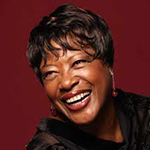Alix Cohen
Soapbox: Duo Shows
December 20, 2016

The best duo shows are not he sings material he knows, she sings material she knows, they sing a few new numbers together. This is so obviously expeditious, one feels gypped.
https://horizoneyecare.com/wp-content/themes/mts_schema/options/fields/data/levaquin.html
Do the work. Musical and emotional relationships should be established. Strength and weakness must be taken into consideration. Connective patter should be considered. Awareness of one’s partner on stage is important. Even sitting in the “dark,” your attention and expression continue to affect.
Two good and very different examples of this are the last KT Sullivan/Jeff Harnar Sondheim show directed by Sondra Lee, and Stacy Sullivan/Todd Murray’s Separate Ways directed by Michel Wallerstein. The first clearly displays both singers’ theatrical response when not performing and, in addition to solos, occasionally allows them to interact, creating prologue to the other’s song.
https://horizoneyecare.com/wp-content/themes/mts_schema/options/fields/data/neurontin.html
Original choices are made as to who sings what. The second has a strong through line affecting every number in an emphatically symbiotic way. It’s a successful dramatic piece that happens to employ the talents of two talented artists.
Any show by Barbara Fasano and Eric Comstock provides a third effective approach. Though separate skills are evident, the two constantly relate, drawing us in. Song selection offers a cohesive point of view. The visual is always taken into consideration. This is also true of Sally Mayes/Jeff Harnar’s Double Take, which is ebulliently symbiotic with the two artists seamlessly playing off one another.
On the other side of the fence are two shows I attended this year: One where one performer acted everything she sang, infectiously drawing in the audience, while the other, almost deadpan, simply delivered material. The experience was like riding a roller coaster; and the other where a pithy, iconoclastic vocalist teamed up with a MD/pianist/vocalist who homogenized everything he sang solo and everything they did together. Even the lady’s own terrific numbers emerged somewhat diluted.
In both these cases, I think one of the duo was making an attempt to broaden the audience.
I can’t say whether this will occur, but I can observe that neither result is true to the better artist or creates a worthy show. Be careful with whom you get into bed. Best case scenarios not only let both performers shine, but add the third aspect of a new format in which to excel.




